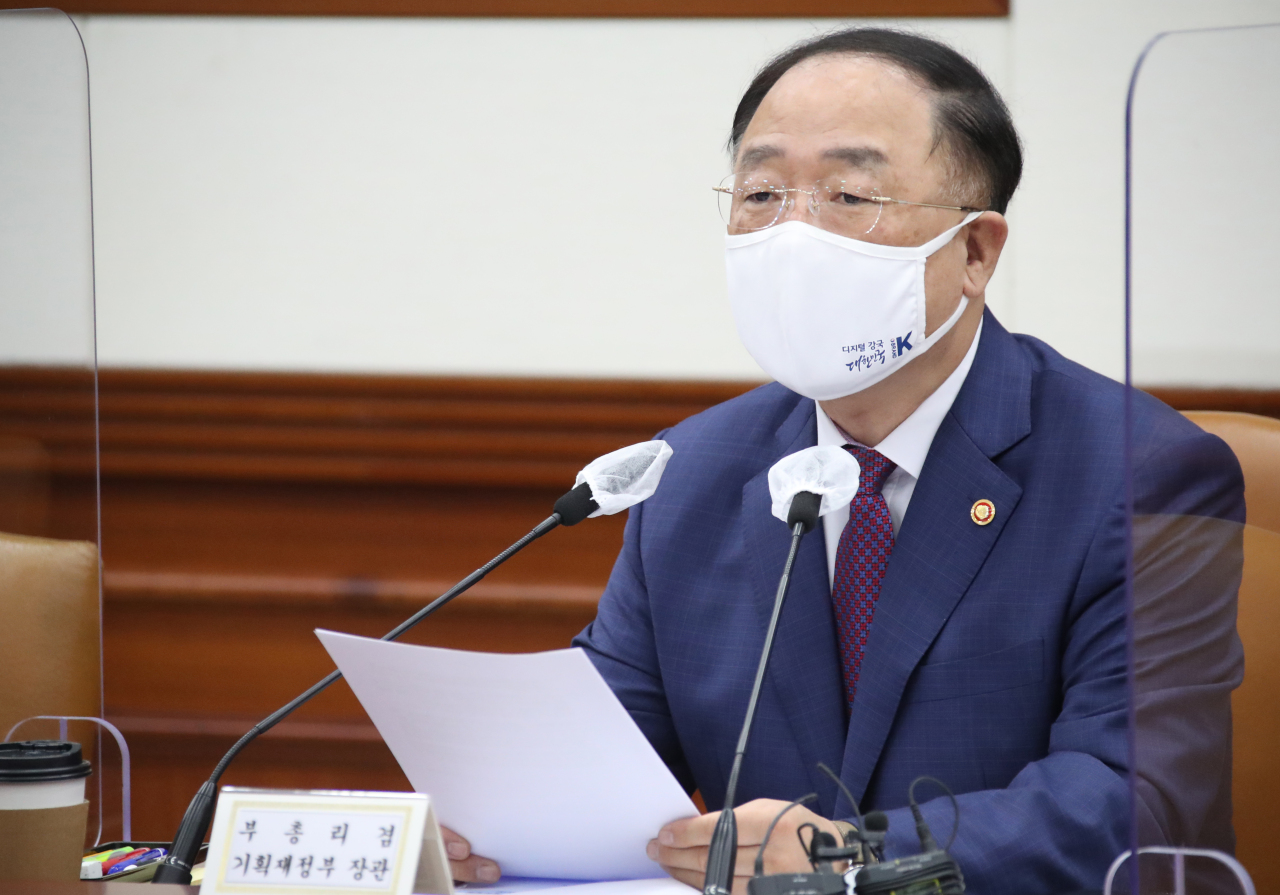 |
Deputy Prime Minister and Finance Minister Hong Nam-ki. (Yonhap) |
South Korea has moved a step closer to officially legalizing the shared accommodation business in rural areas, according to the country’s top fiscal chief.
The “Korean Airbnb” -- modeled after the US shared lodgings company -- would allow business operators to run such services by using empty houses in non-urban areas for all guests -- locals and foreigners alike.
“We have reached a mutually beneficial consensus on using empty homes in farming and fishing areas as lodging options,” said Deputy Prime Minister and Finance Minister Hong Nam-ki in a meeting of economy-related ministers held at Seoul Government Complex.
“Local lodging operators and aspiring enterers have faced some conflicts, but have respectively agreed to take a step back.”
New business operators should accept the relatively limited conditions -- as compared to peer business sectors -- and promise to find ways of contributing to local communities, such as donations to village funds, he added.
Under current law, only the actual residents are entitled to home-sharing in rural areas.
Local coworking space operator Dazayo had run a modified home-sharing service -- renting empty rural homes on a 10-year contract, remodeling the properties, offering them as lodging facilities and returning them to the original owner after the given lease period. This business model, however, was terminated in July last year due to violation of the residence requirement.
Once the revised rules take effect, business operators may lease unused rural properties as lodgings, without the need to reside in the corresponding area.
The conditions are that they should keep the volume of such properties to 50 or fewer in a maximum of five administrative districts. Also, the number of business days will be restricted to 300 days per year at maximum.
Operators are to donate a designated amount in local development funds and abide by service and safety regulations, as well as insurance obligations -- just like any regular lodging service provider.
While lowering the threshold for aspiring lodging business operators, the government also vowed to enhance safety measures, seeking to establish a sustainable business environment, according to the fiscal chief.
“The government will run a support program, allocating some 2.5 billion won ($2.16 million) of next year’s state budget to safety education and business consulting,” Hong said.
In May this year, the government said that it would seek to lift regulations on shared kitchens and shared lodgings in a move to add momentum to new growth potential.
Under the “sandbox” framework, which aims at temporarily easing regulations to test-run new technologies or promising ventures, Korea has conditionally approved the operation of the sharing economy models.
In a separate discussion, the Korean government announced a plan to launch a supercomputing center in 2023 and to nurture some 2,000 bio professionals per year, as part of continued efforts to promote the fast-growing biotechnology sector.
In July, the Moon Jae-in administration unveiled the Korean New Deal, a midterm growth stimulus program to kick-start the coronavirus-hit economy by investing some 160 trillion won and creating 1.9 million jobs by 2025. The comprehensive package is largely built on two policy pillars -- the Digital New Deal and Green New Deal.
By Bae Hyun-jung (
tellme@heraldcorp.com)








![[Today’s K-pop] Blackpink’s Jennie, Lisa invited to Coachella as solo acts](http://res.heraldm.com/phpwas/restmb_idxmake.php?idx=644&simg=/content/image/2024/11/21/20241121050099_0.jpg)